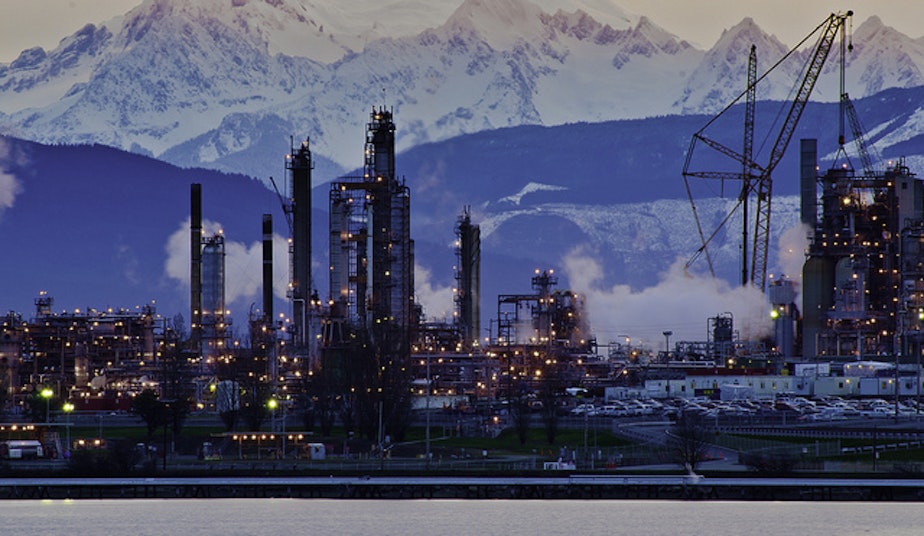Washington’s oil industry gears up for fight against new carbon pricing plan

Supporters of a ballot measure to create a new carbon “fee” in Washington submitted 377,000 signatures to the Secretary of State's office this week, which should be more than enough for the initiative to qualify for the November ballot.
But while supporters have donated more than $2 million dollars for the campaign, energy companies have pledged $250,000 to defeat it.
Initiative 1631 marks the state’s third attempt to put a price on carbon in order to address climate change. A 2016 ballot measure and an effort in the last legislative session both failed.
The latest initiative would place an escalating fee on carbon emissions from oil and natural gas, starting at $15 per ton in 2020. The revenue would support alternative energy and conservation projects to address climate change.
The "Yes on 1631" campaign will travel the state this summer highlighting the types of projects the fee could support, campaign spokesperson Nick Abraham said.
Sponsored
“That’s going to be the solar and wind projects going up in places like Centralia,” he said, "and the Spokane River cleanup where we can start investing back in our natural resources.”
Regional Yes on 1631 field director Izzy Goodman said the initiative was crafted by labor, environmental and tribal groups.
“There’s over 200 Washington organizations that support the campaign and only the oil industry is our biggest opponent, and I think that tells folks a lot of what they need to know about this initiative,” she said.
Opponents of the initiative say the fee will drive up the price of gas. The Seattle Times estimated the price increase at 14 cents per gallon.
"This is going to hit hardest on middle income and lower-income people in Washington State," Mark Funk, "No on 1631" spokesperson, said.
Sponsored
Funk said the initiative would also jeopardize jobs in the industry. "The energy companies in the northwest part of the state are major employers here," he said. "They are a stable part of the tax base in places like Ferndale and Anacortes."
But backers of the measure said some of the funds from the carbon fee would go toward helping displaced fossil fuel workers. Another portion would go to help low-income communities address pollution and higher energy costs.

